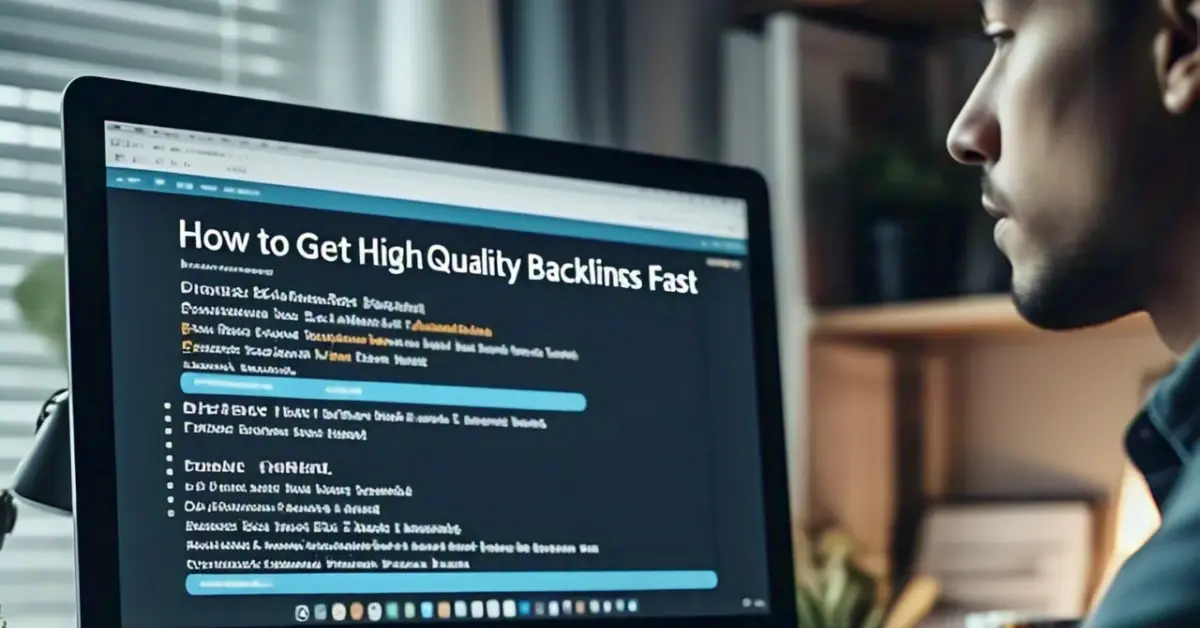Future trends in link building will demand your attention as strategies evolve and search engine algorithms become more sophisticated. You must adapt to the increasing importance of high-quality, relevant backlinks while avoiding practices that could lead to penalties. As we approach 2024, understanding user intent and fostering genuine relationships will prove more valuable than ever. In this blog post, you will explore crucial strategies and navigate the risks associated with outdated techniques to help you stay competitive in the digital landscape.
Key Takeaways:
- Quality over Quantity: In 2024, focus on acquiring high-quality backlinks from authoritative sources rather than accumulating a large number of links.
- User Experience: Optimize for user experience; links that enhance content value and provide real benefits to users will become increasingly important for SEO.
- Content Diversity: Embrace diverse content formats such as videos, podcasts, and infographics which can foster more effective link-building opportunities.
The Evolution of Link Building
While the concept of link building may seem straightforward, its evolution has been anything but. The landscape has transformed significantly over the years, driven by technological advancements and changes in user behavior. You need to understand how link building has developed to adapt your strategies effectively in 2024. From the early days of the internet, where simply having links pointing to your site could boost your rankings, the practices have shifted dramatically, necessitating a more sophisticated approach.
Historical Overview
An understanding of the historical context of link building is vital for grasping its current complexities. Initially, search engines relied heavily on the number of links pointing to a website as a primary ranking factor. This led to the rise of link farms and other unethical practices aimed solely at acquiring as many links as possible. Over time, search engines, particularly Google, recognized the need for a more nuanced approach to link evaluation, recognizing that not all links are created equal.
As the digital ecosystem grew more complex, so did the methods employed by marketers and SEO professionals. A focus on relevance and authority emerged, pushing businesses to seek out quality links from reputable sources. This shift marked a significant turning point in link building, highlighting the importance of strategy over sheer volume.
Major Algorithm Changes
On the frontlines of link building evolution stand the major algorithm changes implemented by search engines over the years. Google’s updates, particularly those named Penguin and its subsequent iterations, reshaped the way links are evaluated. They introduced a hard line against low-quality links and manipulative practices, specifically targeting websites that engaged in spamming tactics. As a result, your link building efforts must now prioritize quality over quantity to stay in good standing with search engine algorithms.
These algorithm updates have made it vital for you to continuously monitor and adapt your link-building strategies. Adjustments such as disavowing poor-quality links or focusing on acquiring links from relevant, authoritative sites became vital practices. The changing landscape underscores the need for ongoing education and a willingness to evolve as user algorithms continue to advance.
In addition to penalizing poor practices, these updates have also emphasized the need for a natural link profile. Search engines are better equipped to detect links that appear artificially manipulated, which can lead to significant penalties that affect your rankings. This evolution means that nurturing genuine relationships and providing valuable content should be at the forefront of your link-building strategy.
The Shift from Quantity to Quality
Historical trends indicate that the focus of link building has shifted from merely acquiring a high volume of links to ensuring that those links are of the highest quality. As you navigate the complexities of SEO, you should consider that search engines value contextual relevance and authority over mere numbers. Your goal should be to secure links that genuinely contribute to your site’s credibility and visibility.
Plus, investing time in cultivating meaningful connections and sharing valuable resources can yield long-term benefits for your brand. High-quality backlinks not only enhance your search rankings but also drive targeted traffic, improving user engagement and ultimately leading to conversions. By focusing on building a robust link portfolio and prioritizing quality, you can position your website for sustained success in the evolving landscape of 2024.
Current Best Practices in Link Building
Any digital marketer knows that effective link building is vital for enhancing your website’s authority and visibility in search engine rankings. As we navigate through 2024, it’s crucial to pay attention to best practices that not only comply with search engine guidelines but also resonate with the audience. Focusing on ethical link building techniques will not only foster long-term relationships but will also enhance your reputation in the digital landscape.
Ethical Link Building Techniques
Below are some of the most ethical link building techniques you should implement in your strategy. Engaging in guest blogging, creating shareable infographics, and participating in relevant forums can significantly elevate your link profile. Instead of relying on black hat tactics like buying links or participating in link farms, aim for authentic link placements that represent your brand values.
Additionally, investing time in outreach to reputable websites can yield valuable links. Craft personalized messages that highlight the relevance of your content to their audience and provide a compelling reason for them to link back to you. This not only builds links but also nurtures an authentic connection with industry influencers.
Importance of Content Quality
With the ever-evolving landscape of SEO, the quality of your content remains a paramount factor in link building success. High-quality, informative, and engaging content naturally attracts links, as other writers and website owners are more likely to reference content that provides genuine value to their readers. This kind of coveted content not only garners attention but also establishes you as an authority in your niche.
Considering that search engine algorithms increasingly favor content that is well-researched and contributes to a meaningful conversation, it’s important to invest in developing substantial resources that your audience will appreciate. Whether it’s through in-depth articles, thought-provoking videos, or visually striking infographics, focus on creating content that not only meets the needs of your target audience but also motivates them to share your insights, thereby enhancing your link-building efforts.
Building Relationships with Influencers
Importance of establishing strong relationships with influencers cannot be understated in today’s link building environment. When you connect with key figures in your industry, you not only promote your content but also create opportunities for mutual collaborations in the future. These relationships can lead to organic backlinks from recognition and trust built over time.
Moreover, when you develop genuine partnerships with influencers, your content gains additional credibility as it is shared within their circles. This network effect amplifies your reach and can bring a steady stream of traffic to your site, benefiting your search engine rankings significantly.
A effective strategy for building these relationships is to engage with influencers on social media, comment on their content, and share their insights with your audience. By positioning yourself as a supportive and proactive member of your community, you open avenues for collaboration and reciprocal link building opportunities that can yield long-term benefits.
The Role of Technology in Link Building
Your link building strategy in 2024 will be significantly influenced by advancements in technology, shaping how you acquire and manage your links. As algorithms become more sophisticated, staying ahead means embracing innovative tools and methodologies that not only streamline processes but also enhance the quality of your link network.
AI and Automation in Link Acquisition
Across the link building landscape, artificial intelligence (AI) and automation are revolutionizing how you approach link acquisition. With the ability to analyze vast amounts of data, AI-driven tools can identify valuable linking opportunities based on relevance and authority quickly. This means that instead of spending countless hours researching potential partners, you can leverage technology to generate a prioritized list of targets without the manual legwork.
Furthermore, automation helps you manage outreach with greater efficiency. Tools designed for automated outreach can personalize your communication at scale, ensuring that each message resonates with its recipient. This level of efficiency not only saves you time but also increases the likelihood of successful engagement.
Data Analytics for Link Building Strategies
Behind every successful link building strategy in 2024 will be a solid foundation in data analytics. To stay ahead of your competition, integrating analytics into your link building efforts allows you to gain valuable insights into what works and what doesn’t. By analyzing link performance metrics, such as domain authority and traffic referral quality, you can fine-tune your strategies for better outcomes.
Acquisition of effective links requires continuous analysis of your link profile and competitors. Utilizing data analytics can help you identify patterns and trends that inform your decisions, from the types of content that attract more backlinks to which outreach methods yield the best results. By adopting a data-driven approach, you position yourself to make informed adjustments that will amplify your link acquisition efforts.
Tools and Software to Consider
Against the backdrop of evolving technology, choosing the right tools and software for link building becomes imperative. A variety of platforms offer features designed to enhance your link building efficiency, from identifying high-quality prospects to tracking your link profile’s health. With a robust toolkit, you can streamline your outreach, better assess the value of potential links, and maintain a targeted approach to building your online authority.
Role in this modern landscape is about harnessing innovative resources that provide actionable insights. Opting for tools that utilize AI and data analytics not only aids in operational efficiency but also improves the quality of your link building efforts. Some standout options include outreach management systems that are equipped with intelligent suggestions for potential partners and analytics platforms that provide detailed reports on your link profile’s performance.
Emerging Trends for 2024
Many marketers are beginning to recognize that the landscape of link building is evolving rapidly, influenced heavily by changing consumer behaviors and technological advancements. Staying updated with these trends is imperative for maintaining and boosting your online presence in 2024. The approaches you take now will not only affect your immediate link-building efforts but will have a long-term impact on your search engine optimization strategies.
The Influence of Social Media
Emerging trends in social media are reshaping how people discover and interact with content online. As platforms like Instagram, TikTok, and Twitter gain dominance, the potential for earning links from social media becomes more prominent. You can leverage these platforms not just for brand visibility, but also to foster valuable relationships with influencers and content creators who can amplify your reach and enhance your link-building efforts.
The increasing integration of social sharing features into search engines also means that your social media presence can significantly impact your SEO. Sharing valuable, engaging content on social media platforms can drive traffic to your website and encourage others to link back to you. Therefore, investing time in building a strong social media strategy is an important step in preparing for 2024.
Interactive Content as a Link Magnet
Interactive content is emerging as a highly effective way to attract links in 2024. Instead of static articles and images, creating quizzes, polls, and calculators can capture the interest of your audience more effectively. By delivering an experience that invites users to engage with your content, you are not only adding value but also increasing the likelihood of others linking back to your site as a reference. Such content can significantly enhance your brand’s visibility and credibility online.
At the core of this trend is the knowledge that people are more likely to share and link to content that resonates with them personally. By providing interactive experiences that encourage participation, you foster a deeper connection with your audience, making them more inclined to spread the word about your content across various platforms.
Video Content and Link Acquisition
Interactive video content is making waves as a potent tool in link acquisition strategies for 2024. Engaging video content can captivate your audience’s attention and keep them invested in what you are saying, creating opportunities for you to naturally integrate calls-to-action that encourage users to share and link back to your content. As video continues to dominate online platforms, focusing on creating compelling and informative content can yield impressive long-term results for your link-building campaigns.
With the rise of platforms dedicated to video content, such as YouTube and TikTok, you should seek to create relevant and engaging videos that not only provide value but also spice up your overall content strategy. Taking the time to optimize these videos for search parameters and including links to your website can significantly increase your link acquisition and enhance visibility across channels.
Assessing the Value of Backlinks
Unlike the past, when the sheer number of backlinks might have sufficed for SEO success, today’s link-building landscape demands a more nuanced approach. Understanding the value of your backlinks is vital to ensure that they positively impact your website’s authority, search engine rankings, and overall online visibility. As you navigate the complexities of link building, it’s imperative to assess the quality rather than just the quantity of backlinks you acquire.
Metrics for Evaluating Link Quality
Before plunging into link-building strategies, consider the various metrics that can help you evaluate link quality. Metrics such as Domain Rating (DR), Page Authority (PA), and Trust Flow provide insight into how reputable a linking site is. These figures allow you to make informed decisions about which backlinks are likely to bring the greatest value to your site. By focusing on high-quality backlinks from authoritative websites in your niche, you can create a more effective link profile that enhances your SEO efforts.
Additionally, examining contextual factors like the relevance of the linking site to your content can help you further assess link quality. A backlink from a highly relevant source not only boosts your site’s credibility but also attracts more targeted traffic. As you analyze these metrics, develop a strategy to prioritize acquiring links that score high across multiple dimensions.
The Role of Domain Authority
Along with evaluating individual backlinks, it’s vital to understand the role of Domain Authority (DA) in your link-building efforts. Domain Authority is a prediction of how well a website will rank on search engine result pages (SERPs), calculated based on various factors including backlink profile and site structure. A higher DA typically indicates a stronger potential to drive traffic and improve your SEO standings.
In fact, focusing on obtaining backlinks from sites with a high Domain Authority not only elevates your own site’s standing but also improves your chances of ranking higher in search results. While it’s important not to overlook smaller, niche sites, prioritizing links from high-DA sites can significantly bolster your website’s credibility and visibility.
Understanding Referral Traffic
Among the many advantages of earning high-quality backlinks, the generation of referral traffic stands out. This type of traffic comes from users who click on a link from another site to land on yours. Unlike organic search traffic, referral traffic is direct and often indicates a higher level of interest from potential customers or readers. By acquiring backlinks from well-regarded sites, you not only enhance your authority but also diversify your traffic sources, reducing reliance on search engines alone.
For instance, a backlink from a popular industry blog can direct a significant number of users to your site, helping you build a dedicated audience. As you pursue link-building opportunities, keep track of the referral traffic generated by each backlink. This way, you can fine-tune your strategy in real time and identify which links deliver the best results in terms of increased site visits and potential conversions.
Link Building Strategies for Different Industries
Keep in mind that effective link building strategies can vary significantly based on your industry. Understanding the nuances of your sector can help you tailor your approach to maximize your outreach efforts and improve your website’s authority. In 2024, e-commerce businesses, B2B services, nonprofits, and local businesses will need to adopt specific tactics to stay competitive in the link building landscape.
E-commerce
Behind every successful e-commerce strategy is a strong link building effort. To start, focus on building relationships with bloggers and influencers within your niche. They can help promote your products through affiliate links or product reviews, increasing your site’s visibility. Consider offering them unique discount codes or exclusive products to entice them into mentioning your brand on their platforms.
Additionally, you should create high-quality, shareable content such as infographics, how-to guides, and videos that resonate with your target audience. By leveraging social media and encouraging user-generated content related to your products, you can significantly enhance your link profile. This strategy not only helps you to gain backlinks but also builds a community of loyal customers who are likely to recommend your brand.
B2B Services
To successfully implement link building for your B2B services, it’s crucial to create content that offers value to your target audience. Develop in-depth case studies or informative white papers that potential clients find helpful. When you share this content on platforms like LinkedIn, it can foster trust and attract links from industry professionals who value expert insights.
Networking plays a pivotal role in B2B link building as well. Attend industry events, webinars, and conferences where you can meet potential collaborators. Engaging with other businesses in your field and forming partnerships can lead to valuable backlinks through guest posts and cross-promotions.
In addition to networking and content creation, consider leveraging tools such as HARO (Help a Reporter Out) to gain exposure. By responding to journalists requesting expert opinions, you not only position yourself as an authority in your field but also generate high-quality backlinks from reputable publications.
Nonprofits and Local Businesses
One effective strategy for nonprofits and local businesses is engaging with your community. Start by tailoring your outreach towards local media, bloggers, and community platforms that feature local events or causes. This personalized approach can help strengthen your ties within the community while increasing your chances of earning valuable local backlinks.
Furthermore, collaborating with other local organizations for events or social causes can enhance your link building efforts. When you co-host an event, for instance, both parties can share the event’s details on their websites, generating mutual backlinks and expanding your reach.
Due to the nature of nonprofits and local businesses, fostering strong relationships within the community and creating meaningful partnerships are crucial. By doing so, you can tap into various opportunities for gaining backlinks and, more importantly, building a reputable presence in your local area. This strategy not only boosts your SEO but also enhances your credibility and trustworthiness among potential supporters and customers.
To Wrap Up
Upon reflecting on the future of link building in 2024, it becomes evident that adapting to the evolving landscape will be important for your digital marketing strategy. You need to focus on quality over quantity, emphasizing genuine relationships and relevant content that resonates with your target audience. As search engines continue to refine their algorithms, prioritizing user experience and authoritative sources, your approach to link building should align with these changes. By staying proactive and informed, you can enhance your website’s credibility and increase visibility in search results.
In your link-building endeavors, leveraging innovative tools and embracing data-driven strategies will empower you to achieve better outcomes. Engage with your community through social media, content partnerships, and guest blogging, as these avenues not only foster meaningful connections but also enhance your chances of acquiring high-quality backlinks. As you navigate the complexities of link building in 2024, a forward-thinking approach will position you for long-term success in the digital space.
FAQ
Q: What significant changes can we expect in link building strategies in 2024?
A: In 2024, link building strategies are expected to shift towards a more quality-over-quantity approach. Search engines are increasingly favoring authoritative and trustworthy sources, which means that nurturing relationships with high-quality publications and websites will be necessary. Additionally, the rise of artificial intelligence and machine learning may lead to more sophisticated algorithms that assess link relevance and context, making it important for marketers to stay updated on these technologies. Engaging content marketing, organic outreach, and solid social media presence will likely become more influential in the link-building process.
Q: How will changes in search algorithms impact link building?
A: As search algorithms evolve, particularly with the integration of AI and enhanced user behavior tracking, link building will adapt accordingly. In 2024, search engines may prioritize contextual relevance, which means that not only the source of the link matters but also the content surrounding it. Marketers will need to focus on contextual link building by ensuring links are embedded in content that is relevant and valuable to the user. Techniques like guest blogging may need to be refined to maintain effectiveness, emphasizing the significance of producing high-quality and relevant content that earns valuable backlinks naturally.
Q: What role will content play in link building in the coming year?
A: Content will remain at the heart of successful link building strategies in 2024. High-quality, valuable content that resonates with target audiences is necessary for attracting backlinks from authoritative websites. As competition for online visibility intensifies, marketers will need to focus on creating diverse content types, such as infographics, videos, and interactive pieces, that encourage sharing and link generation. Furthermore, with an emphasis on user experience and engaging storytelling, content must not only be informative but also designed to draw in engagement and promote sharing across social media platforms.



